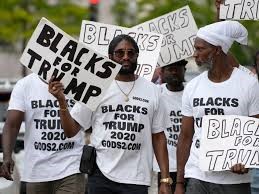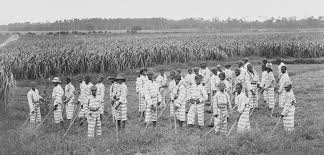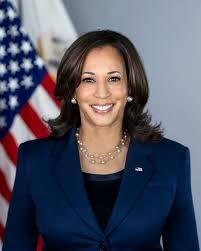I Have Seen It All Now!!!!: An Encounter with a Nigerian Trump Supporter
Yesterday, while driving to the gym, I found myself at a red light behind a vehicle with vanity plates that read Trummp. Yes, whoever was driving the car was so committed to displaying their allegiance to Donald J. Trump that they were willing to appear illiterate to the entire world.
Although it is not easy to identify a driver through a tinted back window. Yet, I was sure of what I had seen. My eyes told my brain that the driver must have been a member of the 80s R&B group Full Force because he had on some oversized stunner shades. Texturized hair shaped into a box haircut like Big Daddy Kane wore through the ’80s and ’90s. This person would have made a quantum leap in time if my eyes had not deceived me.
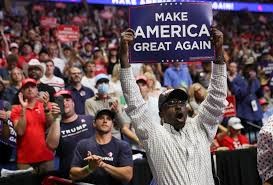
I was glad we both went into the same strip mall and appeared to be heading to the gym. I would soon have a clear view of who was driving the older model vehicle.
And you know what?
My eyes had not lied to me. The dark-skinned brother who emerged from the vehicle had on stunner shades, a very colorful shirt, far too tight pants, and enough gold to be mistaken for Mr. T. I recognized him as a regular at the gym and plotted to find an opening that would allow me to ask him if he were a Trump or is it Trummp supporter.
Although I rarely talk to anyone at the gym, I knew this brother spoke to any and everyone. Today would be the day that I engaged him.
In between sets, I learned he was Nigerian and a proud Trump supporter. He laughed at the mention of his misspelled license plate; the correct spelling was unavailable. I intently listened as he attempted to rationally explain his political position. He talked about economic benefits, his agreeance that all immigrants needed to be removed, the irony here was too much for me to stand, and his Christian duty. I attempted to delve into this brother’s logic by asking him why he thought most Blacks supported Harris and had been somewhat wedded to the Democratic Party since the 1934 off-year election of FDR’s first Presidential tenure.
I am unsure if I was more startled or saddened by his response.
In his opinion, the only reason Blacks supported Harris was because of Race, not substantive policy projections, and their refusal to abandon the Democratic Party was attributable to collective laziness. Such disrespect from Continental Africans has never sat well in my spirit, and I have rarely been able to resist the compulsion to hold my peace.
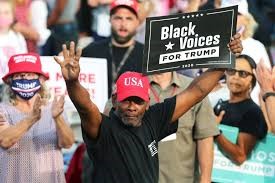
My counter to his ahistorical statements offended him. Anger was stitched across his face when I told him that his African ass would not be here had it not been for those lazy Blacks. He was bewildered by my assertion that morality, decency, and socially responsible individualism have rarely been applied, let alone monopolized by white Christians. Such values have been drilled into the minds of Blacks who attend any semblance of a legitimate Black church. I took the scenic route in explaining to him that he was a fool for throwing his support behind a lot of far-right racists whose language, antics, and intentions have forced traditional Republican Party members to abandon ship.
I closed my rant with the following request for all non-white Trump supporters. When those folks show you what they really think about you, stand there and take that disrespect, and you should not look for our assistance.
Rest assured that the so-called Christian Nationalist train that Trump is guiding is never late. It definitely never misses a stop when it comes to delivering unconscionable disrespect for non-Blacks who are not willing to openly accept them monopolizing anything worth having in this nation.
Dr. James Thomas Jones III
© Manhood, Race, and Culture 2024.
Are Black Men Suffering From Stockholm Syndrome?: The Rise of Black Men Willing to “Make America Great Again”
I was recently ensnared in one of the most peculiar conversations a Professor could have with a student regarding the fast-approaching Presidential election. That sense of peculiarity turned into concern when I encountered others expressing their intention to vote for Donald J. Trump. This political move is actual support for Trump and his low-information racist brigade of racists in their attempts to “Make America Great Again.” Simply put, there is a significant population of Black men determined to cut off their noses to spite their faces by voting for white supremacy and its various manifestations.
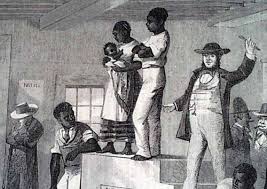
One particular discussion with a young man determined to “Make America Great Again” led me to believe he was suffering from Stockholm syndrome. The same mental disorder that ensnared Patricia (Patty) Hearst after being kidnapped by the Symbionese Liberation Army (SLA) in 1974.
The granddaughter of publishing magnate William Randolph Hearst attributed her support of the SLA robbing of several banks to Stockholm syndrome, a malady that mental health experts term a psychological response by abduction victims who develop a bond with their captor via brainwashing.
It appears that the Black men willing to vote for Donald J. Trump are due to a perfect storm of historical illiteracy flowing from an absence of relevant education, miseducation, and an astounding inability to understand the never-ending battle for politico-economic control. After all, the colonists’ desire for political power and wealth birthed this nation.
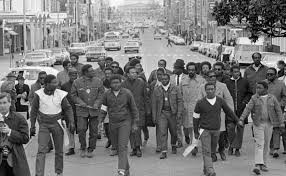
The never-ending resistance of majority white public school boards regarding the inclusion of the Black experience has left several generations of Blacks without an understanding of Jim Crow. One only needs to listen to the illogical hair-brained assertions of pseudo-Black Studies intellectuals that have proliferated over the last few years as if they were Gremlins who have found a large body of water to dive into for verification. They have no idea that their support of Donald J. Trump is akin to turning a blind eye to Mississippi bigots while they teach Blacks life lessons.
Yet, those proudly expressing their desire to cast a vote for the sake of “Making America Great Again” a synonym for returning to an era that Rayford Logan termed The Nadir, a moment where rapes, lynchings, abductions, and burnings of Blacks were the rule of law. And before pseudo-historians assert that they were members of the Democratic Party, this is true. Yet, that spirit of unregenerate evil moved in mass toward the Republican Party during the Southern Campaign. Today’s Democratic Party is no more reflective of the old Democratic Party than today’s Republican Party reflects the values of old. No William Lloyd Garrison, John Brown, Maria Stewart, David Walker, or Frederick Douglass are found in their midst.
Time is running out for Black men to reach an understanding that this political matter has nothing to do with Kamala Harris and her racial identity; it has everything to do with the realization that your best interests are represented by those supporting unionization, the pathway to a solid middle-class, and the monitoring of those who have to this day done their best to solidify their privileged position by rigging the system in their favor.
Although I stand with those who maintain that Black men are not a monolithic population, I also understand that the interests of most Black men are best served at the present moment by the Democratic Party ticket. An inability to recognize this fact hints at you not understanding the stony road our people have trod and the long way we must go in the battle to ensure that Black people have accessible pathways for individual and collective growth.
Dr. James Thomas Jones III
© Manhood, Race, and Culture 2024.
What Kamala Harris Should Do If She Want To Secure The Votes of Black Men
My position as a Professor paves the way for me to be involved in far too many discussions of Race. Usually, these intense discussions occur with Black folks who know nothing significant about Race. One thing is for sure, there is always some issue that reminds me of Black folk’s inability to appropriately analyze politico-economic decisions and then make self-advantageous decisions. I am tired of repeatedly seeing Black folks become distracted by minutiae that leads them to waste the scant political power they possess.
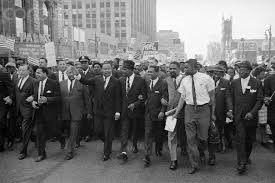
As mentioned above, if given enough time, some issues will arise to remind me of how inefficient my people are when it comes to thinking about Race and politics. The most recent issue is the ascension of Kamala Harris.
As a writer focused on Black men and Race, these moments resemble a fertile field. As soon as Kamala Harris’s ascension to the top of the Democratic Party’s ticket became a possibility, I heard a litany of commentary from Black men. Black men issued the following remarks.
- She is not Black, so I will not be voting for her.
- She has locked up so many brothers as a prosecutor.
- What has she done for Black people from her current White House position?
I avoid the use of anecdotal evidence in my writing. So, I distrusted commentary from friends and family pledging to vote against anyone running against Trump as much as those dedicated to not voting for Harris under any circumstances. Instead of using anecdotal evidence, I waited until the polls, studies, and surveys appeared.

A recent survey from Howard University, I prefer to use data from Black sources, verified my belief that the most significant weakness for Kamala Harris’ political aspirations was found among Black men. According to the Howard University poll, Black men between the ages of 18 and 49 are not as supportive of Harris as other segments of Black America. Only 75% of the above demographic supported her, while 16% opposed.
Compared to Black America’s reliable support for the Democratic Party that began with the off-year election (1934) of FDR’s first term and increased significantly with JFK’s White House tenure, the relatively tepid support for Kamala Harris is intriguing. Does it mean that the extended gender wars have finally pushed Black males to hate Black women, or is this a sign of long overdue frustration with Democratic Party politicians who neither address nor provide any legislative solutions to the many socioeconomic problems that have shadowed Black men since the first parcel of “half-free” African men were sold to the Jamestown colony? It is not difficult to believe that many Black men are not only frustrated with their present lives but also see no solution to the racial discrimination and grinding poverty they experience daily.
To the chagrin of American politicians, Black men understand that the election of Kamala Harris or anyone else will not immediately solve their problems. At best, Black men are a means to political power for politicians who offer nothing in exchange.
Unfortunately, it appears that the Harris campaign’s most persuasive argument for wooing Black men is not legislative promises; it is highlighting Donald Trump’s wild attacks on the Central Park Five or racial discrimination charges against the real estate tycoon. If nothing else, this proves that American politicians still do not understand that the most efficient manner to garner the support of Black men is no different than the means they use on other groups. Directly state what you are offering them for their vote. Anything less simultaneously speaks volumes about politicians’ view of Black men and makes them unworthy of our vote.
I hope that Kamala Harris’ campaign learns this sooner than later because the stakes are high.
Dr. James Thomas Jones III
© Manhood, Race, and Culture 2024.
A Black Man’s Recollections of September 11, 2001
In his epic work, The Souls of Black Folk, W.E.B. DuBois describes the status of Black folks in the following manner.
One ever feels his twoness,—an American, a Negro; two souls, two thoughts, two unreconciled strivings; two warring ideals in one dark body, whose dogged strength alone keeps it from being torn asunder.
The history of the American Negro is the history of this strife,—this longing to attain self-conscious manhood, to merge his double self into a better and truer self. In this merging he wishes neither of the older selves to be lost. He would not Africanize America, for America has too much to teach the world and Africa. He would not bleach his Negro soul in a flood of white Americanism, for he knows that Negro blood has a message for the world. He simply wishes to make it possible for a man to be both a Negro and an American, without being cursed and spit upon by his fellows, without having the doors of Opportunity closed roughly in his face.

Although written more than a century ago, DuBois’ words still represent Blacks’ plight with marksman’s accuracy.
Moments such as 9/11 serve as a reminder to Blacks that our ancestor’s labor brute, brawn, and ingenuity are cheapened, if not denied, by those who most benefit from their contributions. If I did not know any better, I could be convinced that the advancement of Blacks in this nation hinges upon one’s willingness to deny one of this nation’s grandest traditions, racism.
Americans old enough to remember September 11, 2001, can tell you where they were when the terrorist attack occurred. I was asleep when it happened, having fallen asleep after writing all night on my Doctoral Dissertation. My peaceful slumber was interrupted by a phone call from my best friend, Damon Thomas, a schoolteacher who lived in Harlem and worked in Manhattan. Since my phone rarely rings, a status that reflects my interest in the lives of others and the world around me, I stirred from my slumber, placed the dreaded device next to my ear, and heard the following.
So, whose ass do we have to kick?
I am sure that you understand my shock at hearing such somber words. My mind and emotions instantaneously went to questioning which of our loved ones had been unwilling victims of some unrighteous attack that must be avenged.
Little did I know that this brother, who I had seen transform from a relatively loose association with The Nation of Gods and Earths to a schoolteacher at an elite private Jewish school, was referencing the less than two hours old attack upon his city, borough, and country. The attacks on September 11, 2001, activated something inside of my best friend. This instantaneous desire to stand for country was nothing new; Blacks had experienced it before this nation’s founding and every moment of crisis after its creation.

Despite other’s foolish attempts to deny Black patriotism, the historical record proves that no other group has been more prepared to place their grievances on the back burner for the sake of the country than Blacks. An argument could be made that Black folks are the most patriotic, especially considering the sparse rewards for serving this nation.
So, on this day of remembrance for the lives lost and changed forever due to the events of September 11, 2001, I hope that we can pause the in-fighting and realize that in the grand scheme of things, we are all in the same boat. Unfortunately, there appear to be segments of our citizenry and political class willing to cut off their nose to spite their face by denigrating others in their pursuit of money and political power. Until such people learn that we are inextricably tied together, they will continue pushing others they disagree with off the ship we are all traveling on.
Maybe the day will come when Americans are so enraged by the ill-treatment of their fellow citizens, regardless of their color, that they will stand against those evildoers by asking their victims, “Whose ass do we have to go kick?” One thing is sure: we are nowhere near that point right now.
We can always achieve such things in the future.
Dr. James Thomas Jones III
© Manhood, Race, and Culture 2024.

